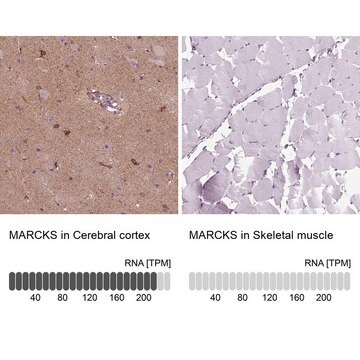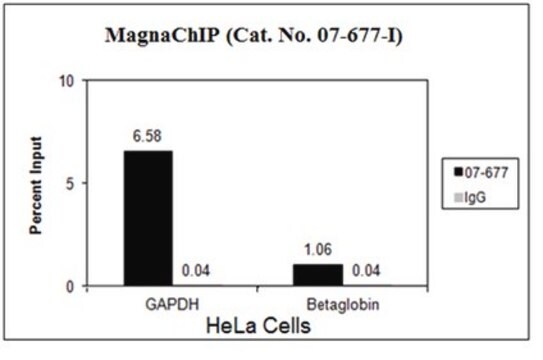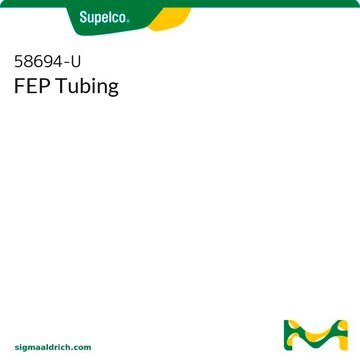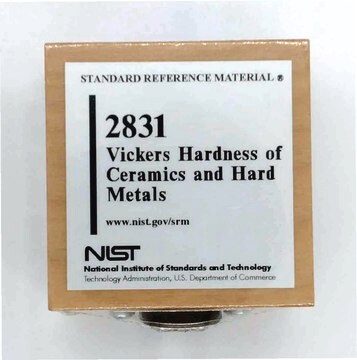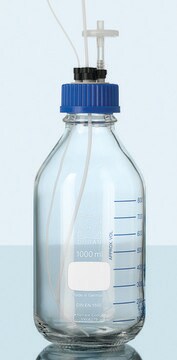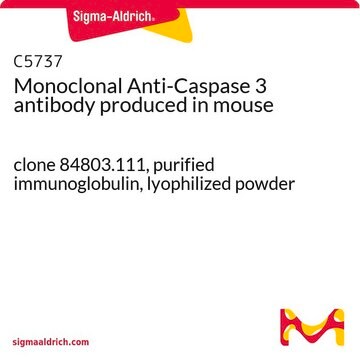07-1238
Anti-phospho-MARCKS (Ser152/156) Antibody
from rabbit, purified by affinity chromatography
Synonym(s):
Myristoylated alanine-rich C-kinase substrate, Protein kinase C substrate, 80 kDa protein, light chain
About This Item
WB
western blot: suitable
Recommended Products
biological source
rabbit
Quality Level
antibody form
affinity purified immunoglobulin
antibody product type
primary antibodies
clone
polyclonal
purified by
affinity chromatography
species reactivity
mouse, rat, human
technique(s)
immunohistochemistry: suitable (paraffin)
western blot: suitable
isotype
IgG
NCBI accession no.
UniProt accession no.
shipped in
wet ice
target post-translational modification
phosphorylation (pSer152/pSer156)
Gene Information
human ... MARCKS(4082)
General description
Specificity
Immunogen
Application
Representative images from a previous lot.
Optimal Staining of MARCKS With Citrate pH 6.0 Epitope Retrieval: Rat Placenta
Optimal working dilutions must be determined by the end user.
Signaling
Cytoskeletal Signaling
Quality
Western Blot Analysis: 1:500 dilution of this lot detected phosphorylated MARCKS on 10 μg of EGF treated A431 lysates.
Target description
Linkage
Physical form
Storage and Stability
Handling Recommendations: Upon first thaw, and prior to removing the cap, centrifuge the vial and gently mix the solution. Aliquot into microcentrifuge tubes and store at -20°C. Avoid repeated freeze/thaw cycles, which may damage IgG and affect product performance. Note: Variability in freezer temperatures below -20°C may cause glycerol containing solutions to become frozen during storage.
Analysis Note
A431 Cell Lysate
Disclaimer
Not finding the right product?
Try our Product Selector Tool.
Storage Class
10 - Combustible liquids
wgk_germany
WGK 2
Certificates of Analysis (COA)
Search for Certificates of Analysis (COA) by entering the products Lot/Batch Number. Lot and Batch Numbers can be found on a product’s label following the words ‘Lot’ or ‘Batch’.
Already Own This Product?
Find documentation for the products that you have recently purchased in the Document Library.
Our team of scientists has experience in all areas of research including Life Science, Material Science, Chemical Synthesis, Chromatography, Analytical and many others.
Contact Technical Service